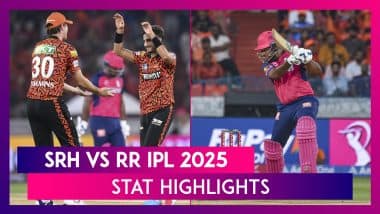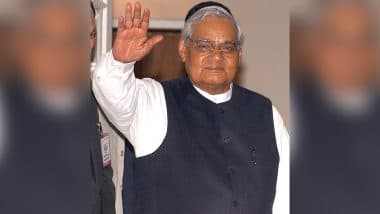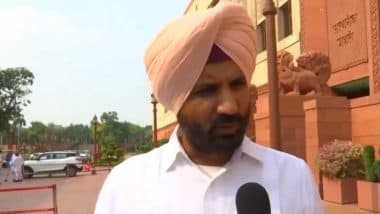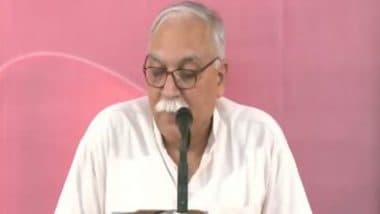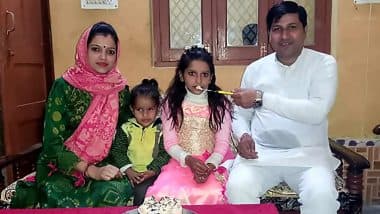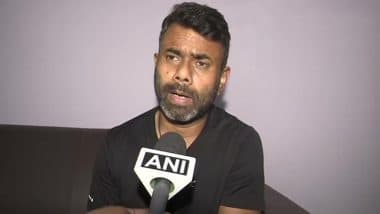New Delhi, Aug 16: I have had a long association with Atal Bihari Vajpayee. Having accompanied him on tours, and seen him work closely, I have seen various sides of the man. He was a tough administrator, a strong politician, a firm decision maker, and at the same time a poet, an admirer of Lata Mangeshkar, an avid movie watcher and a food lover.
In 1998, when Vajpayeeji was in Opposition, he came all the way to ANI office to record his speech for Doordarshan. At that time DD did not allow Opposition leaders to record their speeches or views in their studios. At ANI, Vajpayeeji patiently gave several takes of his speech. Such was the simplicity of this man.
A warm-hearted person that he was, Vajpayeeji had the unique capability of easily drawing a person into the conversation and making him/her feel comfortable in no time. But at the same time, he was a tough decision maker too.
He had nerves of steel which is why he did not blink before the pressure created by Pakistan's then-President Pervez Musharraf during his visit to India for talks in Agra in 2001.
In 1971, the Congress party was having a direct battle with the Bharatiya Janata Party (BJP). One of the main struggles between the two parties was to announce their manifestos. So, when the BJP manifesto prepared by Subramanian Swamy mentioned "Eradicate Poverty," Indira Gandhi lapped it up and came up with Hindi slogan of the same as "Garibi Hatao."
In the General Elections in the same year, the BJP did not announce its prime ministerial candidate due to the rivalry between two strong candidates - Vajpayee and Lal Krishna Advani. The party lost most of its seats, and the BJP ideologues were not very happy with Vajpayee. But slowly the man-made space for himself, both in the party and in the heart of millions of people.
A great orator that he was, Vajpayeeji would inspire people with his speech. He was a great administrator, too. He would allow his bureaucrats and colleagues to work with complete freedom and would consult them on various issues. He also supported freedom for the media and never interfered in our work.
He talked about the concept of India is a country of Hindus. But not at the cost of Muslims or other communities. Vajpayeeji wanted India to be a secular country in the true sense.
Vajpayeeji was a great friend too. It was a pleasure to talk to him and travel with him. I often travelled with him in his aircraft during his foreign tours and en route we used to discuss various political and geographical aspects of those countries.
He loved to eat, particularly, the seafood. I remember during our visit to the Ho Chi Minh City in Vietnam in 2001, we were served with exotic Vietnamese cuisine at a banquet hosted in his honour, that had a huge variety of seafood. I was sitting at a little distance from Vajpayeeji, who was on a high table with Vietnamese Prime Minister Phan Van Khai.
We were served a huge lobster. While I struggled to eat that, I saw Vajpayeeji happily enjoying his meal and the lobster. He tried everything on the table and continued eating till the last, even though his host Vietnamese PM had finished eating much before him.
It was generally believed that way to Vajpayeeji's heart was through his stomach. So, whenever any of the Indian ambassadors wanted to get into his good books, they would fly best chefs to cook for him. It happened in Malaysia in 2001, I remember.
Vajpayeeji was also a nature lover. At a cliff in Bali (Indonesia), where he had gone to attend the ASEAN Summit in 2003, Vajpayee stood silently for a long time watching the water of Indian and Pacific Ocean splashing the hills down. He then turned towards me and said, "Look Premji, how the two oceans meet!" And then we watched the scenic beauty together for a while from that hilltop.
Coming to the administrator's side of Vajpayeeji, I must say, he was a tough negotiator, and had the nerve to beat Pakistan's then-President Pervez Musharraf in the game of brinkmanship. Islamabad has always tried to outplay India on the issue of Kashmir. But with Vajpayeeji, it was clear to them that there was no chance. In Agra in 2001, when Musharraf tried playing this brinkmanship card with Vajpayeeji, I was praying and hoping that India does not surrender to the pressure. And, I felt very good when Vajpayeeji gave a terse reply to Musharraf and made him go back empty-handed. Musharraf packed his bag, cancelled his pilgrimage to Ajmer Sharif Dargah and left India. That was the power of this man.


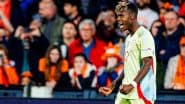




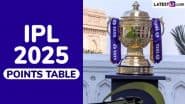
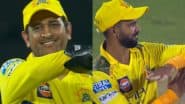
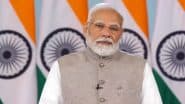



 Quickly
Quickly








